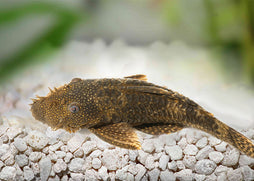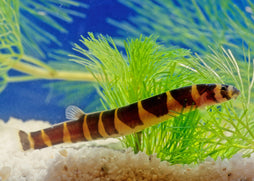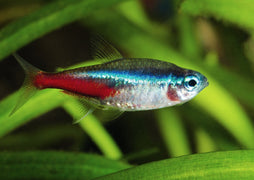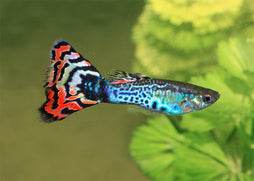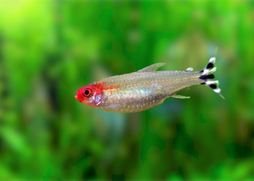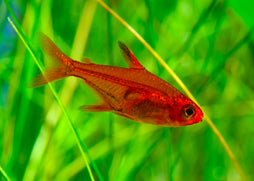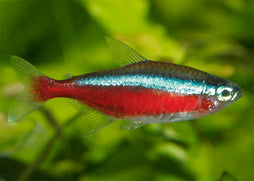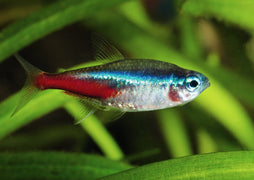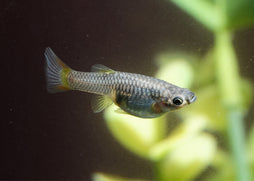Description
The Spotted Brackish Puffer Fish is a generic name and may refer to several different species of brackish water puffer fish. However the most common one we get is the milk spot puffer. Native to estuaries, mangrove swamps, and tidal rivers throughout Southeast Asia, this pufferfish is uniquely adapted to brackish environments and requires special care as it matures. Juveniles can survive in freshwater temporarily, but long-term health and longevity depend on transitioning to brackish and eventually marine conditions as adults.
*photo is an example only and species may vary*
Features of Spotted Brackish Puffer Fish
- Grows up to 15–17 cm in length
-
Vary in colour depending on species but may have spots or stipes
-
Highly intelligent, capable of recognising keepers
-
Displays aggressive and territorial behaviour, especially toward conspecifics and other fish
-
Long lifespan of 10+ years with proper care
-
Has a sharp beak used to crush snails, crustaceans, and shelled prey
-
Requires increasing salinity with age (juveniles: SG ~1.005; adults: SG 1.015–1.020+)
The best aquarium size for Spotted Brackish Puffer Fish
A single adult requires a minimum tank size of 120 litres. For multiple puffers, provide at least 200–250 litres with ample hiding spaces and clear territorial boundaries. These puffers are strong swimmers and need horizontal space to explore.
Tank Mate Compatibility for Spotted Brackish Puffer Fish
Due to their aggressive and predatory nature, tank mates must be chosen carefully, and solitary housing is often best. If tank mates are attempted, they must be brackish-tolerant and fast-moving.
-
Monos (e.g. Mono Sebae)
-
Scats
-
Archerfish
-
Other brackish species
(Keep in mind: tank mates are not always successful and require large aquariums.)
Diet for Spotted Brackish Puffer Fish
Obligate carnivores, these puffers require a diet rich in hard-shelled prey to wear down their continuously growing teeth. Feed snails, mussels, crabs, shrimp, and clams regularly. Supplement with frozen or live bloodworms, krill, and other protein-rich foods. Avoid soft-only diets to prevent dental overgrowth.
Aquarium Setup Spotted Brackish Puffer Fish
Aquarium Filtration
Use powerful filtration such as a canister or sump system with strong mechanical and biological capacity. Puffers produce high bioload, and pristine water is essential. Ensure gentle flow and regular water changes.
Aquarium Plants
Most live plants are unsuitable in brackish water. Use brackish-tolerant species like Java Fern or Anubias, or opt for artificial plants for structure and cover.
Aquarium Lighting
Moderate lighting is ideal. Use LEDs to replicate natural conditions without overheating the tank or promoting excessive algae growth.
Aquarium Heating
Maintain water temperature between 24–28°C with a stable, submersible heater. Avoid temperature swings, which can stress or harm puffers.
Aquarium Substrate
Use fine aragonite sand or brackish-safe gravel. Aragonite helps buffer pH and hardness, mimicking their natural habitat.
Aquarium Decorations
Include mangrove root replicas, smooth rocks, and caves to create hiding spots and visual separation. Ensure decorations are smooth to avoid injury from curious puffers. Maintain open swimming areas in the central tank space.


